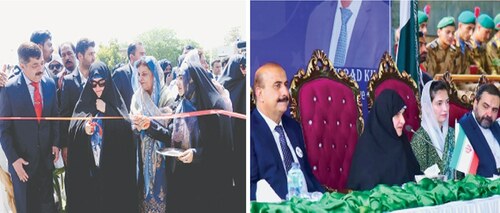“I sang Bulleh Shah in an Episcopal Church in the United States,” Islamabad-based Sufi singer Arieb Azhar informed Dawn after recently returning from a tour of the United States.
Arieb Azhar was part of a cultural exchange programme, sponsored by New England Foundation of the Arts (Nefa), a non-governmental organisation. The event was organised by Lisa Booth Management.
The troupe included guitarist Zeeshan Mansoor, flutist Akmal Qadri and Kashif Ali Dani on Tabla. The purpose of the trip was to expose ‘small town America’ to Pakistani music.
“We were taken to small towns, where the local population is mostly made up of ‘white Americans’ with previously no exposure to South Asian people,” Arieb explained.
The Episcopal Church where Arieb performed was in Bellows Falls, Vermont — a small town.
Arieb Azhar found the Episcopal Church the most progressive in the Christian domination.
“Episcopal Church has already accepted the idea of women and gay ministers,” Arieb informed.
Another phenomenon that Arieb found fascinating in the American Christian experience is the concept of ‘Non-denomination Churches’, churches free of any affiliation to a sect.
“Imagine if we translate that into the Pakistani experience: a non-denomination mosque. Which would mean a mosque free of any affiliation to a sect, where both Shias and Sunnis could pray together,” Arieb said, appreciating the way the American Christian experience had positively transformed society.“Everything was contemporary in the Episcopal Church, where I performed. The Church Minister or any of the people gathered in the church, didn’t ask us once ‘to what religion we belonged’,” Arieb said.
“Most of the people that I met in ‘small town America’ had only heard of Maulana Rumi. But after my performance, they were all very curious and wanted more information on Bulleh Shah and Mian Mohammad Bukhsh. Some said that now they were going to look for English translations on the internet.”
“It is unfortunate that Pakistan has a negative image abroad but Sufi music can change all of that,” Arieb said.
Commenting on people-to-people differences, Arieb said: “Small town Americans are just like us — desi people — they eat with their hands, have a simple world view and interestingly are critical of CIA’s role, just like we are critical of the role of our secret agencies.”
On return to Islamabad, Arieb said that now he wants to replicate the experience in Pakistan. Arieb has been approached by a choir based out of a church in Islamabad that is planning to release a CD, based on Christian devotional songs.
Arieb has agreed to a joint-collaboration and looks forward to working with them.
He says that his exposure to Pakistani church music has ‘an interesting background’. He met the Islamabad choir through Croatian diplomats based in Islamabad.
Arieb speaks Croatian fluently.
He is even fluent in the ‘slang’ and ‘cultural subtleties’ of the language.
He went to Croatia in his student years, where he was trained by an 80-year-old opera singer. After his training, he joined a folk music group, with whom he travelled and performed in every nook and corner of the country.
After returning to Pakistan, Arieb decided to pursue Sufi music as he was naturally inclined towards it.
According to him, Sufi music is one of the best art forms available in the country, in which one can transcend all ‘ethnic and religious boundaries.’
Smiling he says, as if remembering something: “While the Pakistani troupe was performing in the Episcopal Church in the US, a gentleman by the name of Eugene Friesen had come from Berkeley and was conducting a musical workshop in the basement.
When he heard our music, he came up from the basement and requested that he be allowed to perform with the Pakistani artists.
Then we, with a couple of instrumentalists — mostly strings, cello and violin — performed a couple of songs together.”
“It was great fun!” Arieb recalls.













































Dear visitor, the comments section is undergoing an overhaul and will return soon.